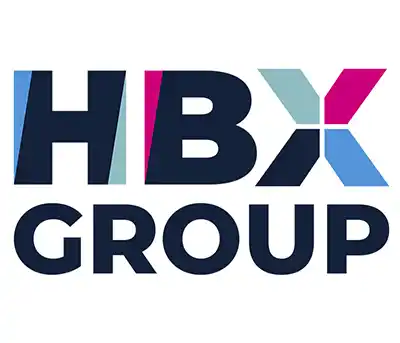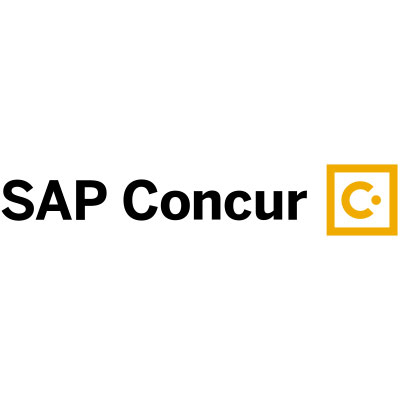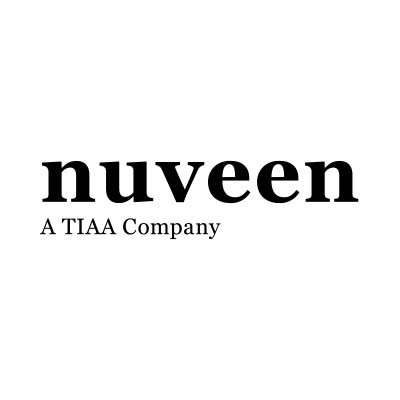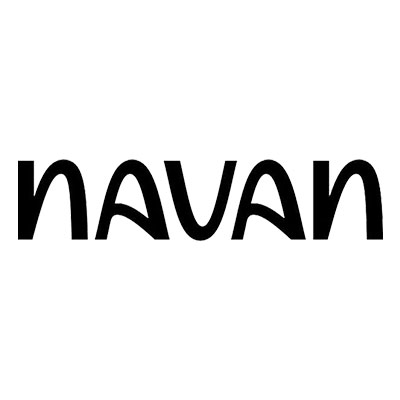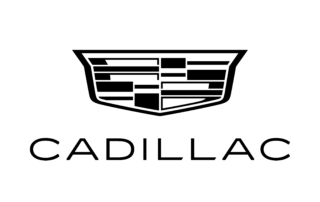Zawiya Chauffeur Services for business travellers
Global availability, Premium experience, Dedicated 24/7 support
Set up your HYRYDE Business Account and get started today
Zawiya Chauffeur Services for business travellers
Global availability, Premium experience, Dedicated 24/7 support
Set up your HYRYDE Business Account and get started today
Get your executives moving with HYRYDE
Luxury chauffeur service in Zawiya
Introduction to Zawiya (Zawiya District, Libya)
Welcome to Zawiya (also Al-Zawiya), a significant coastal city and port located in northwestern Libya, west of the capital, Tripoli, and serving as the capital of the Zawiya District. In fact, Zawiya is renowned for being home to Libya’s largest functioning oil refinery, which is of critical economic importance to the country, and its associated port facilities. Furthermore, the city has historical roots, with the term “zawiya” often referring to an Islamic religious school or monastery, indicating a traditional presence. However, it is of paramount importance to state that Libya, including industrial and coastal cities like Zawiya, has been profoundly affected by ongoing instability and conflict, which has had a severe impact on safety, infrastructure, and daily life. The area around the refinery has itself been a site of clashes.
Additionally, while Zawiya is primarily an industrial and port city, it has features typical of a Libyan coastal urban center. For example, it would historically have local markets (souqs) and residential areas. Its coastline on the Mediterranean Sea would offer beaches, though their current condition and accessibility for public use are uncertain. Any Ottoman-era or older historical structures that may have existed are likely to have been affected by both modern development and, more recently, conflict. Tourist attractions in the conventional sense are very limited, with the city’s profile being dominated by its oil industry. The impact of prolonged conflict on all aspects of life and heritage in Zawiya is substantial.
Consequently, any travel to Zawiya, including via the nearest functioning airport, Mitiga International Airport (MJI) in Tripoli, or by road from Tripoli (which is extremely hazardous), must be approached with extreme caution and only for absolutely essential purposes by individuals or organizations with robust security measures, comprehensive local knowledge, and official permissions. Specifically, any transport coordination services would operate under the most severe constraints, prioritizing safety and security above all other considerations in a highly volatile and dangerous environment.
This information is provided for a general historical and geographical overview. Travel to Zawiya for tourism or any non-essential purpose is unequivocally advised against by virtually all foreign governments due to the extreme risks involved. Any essential travel must be undertaken with comprehensive security assessments, professional guidance from security experts, and adherence to all international advisories and local authority permissions.
Why Choose Our Premier Transport Coordination Service in Zawiya (Context of Essential, Authorized, and Extreme High-Risk Environment Travel Only)
Selecting a transport partner for any essential travel to Zawiya, a key industrial port city that has been directly impacted by Libya’s conflicts, demands an absolute and overriding focus on security, real-time local intelligence, reliability under extreme conditions, and drivers with profound experience in navigating high-risk environments. Our service, if and when operational for strictly essential, authorized, and meticulously planned travel (e.g., for critical industrial personnel with security details, accredited humanitarian organizations with established protocols, or official missions with governmental backing and comprehensive security arrangements), is built upon these non-negotiable principles.
Naturally, our premier transport coordination service, within such an extreme high-risk and volatile context, would strive to offer distinct advantages:
Professionalism and Extreme Local Knowledge Under Duress (Context-Dependent and Security-Led)
Importantly, any team or local partners we would engage with must be highly experienced professionals, possessing intimate, current, and verified knowledge of Zawiya, the operational status of Mitiga International Airport (MJI) in Tripoli for authorized flights, and the exceptionally perilous nature of road networks in western Libya, including the coastal highway to Zawiya. We would only work with extensively vetted local operators who prioritize passenger safety and security above all else, are adept at navigating complex and rapidly changing security situations (including the presence of various militias and checkpoints controlling access to and around Zawiya), and who operate in strict accordance with international safety protocols and any existing local deconfliction mechanisms. This service is exclusively for supporting critical, authorized missions by organizations equipped to manage operations in active conflict or post-conflict zones, and is not available for any form of tourism or non-essential travel.
Consequently, our experience in challenging environments aims to ensure the most secure and logistically sound travel feasible under extreme circumstances. Our professional coordination would be entirely driven by security considerations and in constant liaison with the client’s security advisors and relevant de-conflicting authorities.
Appropriate and Secure Vehicles Suitable for a Conflict/Post-Conflict Environment
Additionally, travel would be facilitated using appropriate, well-maintained, and robust vehicles, very likely armored or reinforced, depending on the specific threat assessment and client requirements. Vehicle selection would prioritize occupant protection, reliability, and low-profile movement where necessary. Advanced communication equipment (e.g., satellite phones, real-time tracking) and emergency medical supplies would be standard for any coordinated movements, especially for travel outside heavily secured zones or between cities.
Punctuality and Extreme Adaptability for Airport Transfers (MJI – If Operational for Authorized Flights) and Essential Movements
Punctuality, while always a professional goal, must be secondary to and balanced with extreme adaptability and adherence to security protocols in a volatile environment like western Libya. For any transfers involving Mitiga International Airport (MJI) – if it were to handle any specially authorized civilian or humanitarian flights – or for pre-agreed essential movements to or within Zawiya (which has been the site of clashes, particularly around its refinery), meticulous planning would be undertaken. However, all itineraries would be subject to immediate alteration or cancellation based on real-time security assessments, local advisories, and on-the-ground conditions. Flexible and responsive contingency planning is critical for survival and mission success.
Highly Personalized and Secure Transport for Authorized Essential Travel Only
Given the context, all services are exceptionally personalized and focused on the security and logistical needs of authorized travelers undertaking essential, officially sanctioned missions (e.g., personnel for the oil refinery with stringent security protocols, essential humanitarian aid distribution if routes are cleared and secured). This includes secure airport meet-and-greet (if applicable and deemed safe by security advisors), direct transfers to pre-vetted secure locations (e.g., fortified industrial compounds, specific secured accommodations if any), and transport for carefully planned and authorized movements, invariably requiring security escorts or specific convoy procedures coordinated with relevant de-conflicting bodies and vetted local security providers. We would only work with organizations that have their own comprehensive security infrastructure, necessary permissions from all relevant authorities, and a clear, legitimate, and essential purpose for travel that has been thoroughly risk-assessed and approved at the highest levels.
Safety and Security-Driven Navigation in an Active and Complex High-Risk Zone
Finally, and most importantly, the safety and security of all personnel involved are the absolute, non-negotiable overriding consideration. Our coordination with any local transport providers would be contingent on their proven ability to operate under stringent security protocols, their access to reliable and current security information (including militia activity, road viability, and the status of security around key infrastructure like the refinery), and their capacity for secure, low-profile, and discreet movement through complex and often unpredictable urban and regional areas. This service is not for tourism or any form of non-essential travel. All travel to Zawiya and Libya as a whole is extremely dangerous and potentially life-threatening.
We strongly reiterate that travel to Zawiya is subject to the most severe official travel advisories against all travel from most governments. This information is for hypothetical essential travel scenarios only and does not constitute an endorsement or encouragement of travel to the region.
Explore Zawiya, Libya’s Coastal Oil City (Subject to Current Conditions and Extreme Caution)
Zawiya (Al-Zawiya) is a significant coastal city in northwestern Libya, west of Tripoli, and is the capital of the Zawiya District. It is primarily known for hosting one of Libya’s most important oil refineries and its associated port, making it a key center for the country’s petroleum industry. While it has historical roots, its modern identity is largely industrial. Due to the prolonged and ongoing instability and conflict in Libya, the security situation in and around Zawiya is highly volatile and dangerous, making any non-essential travel ill-advised.
All travel to Zawiya must be preceded by a thorough risk assessment and adherence to official travel advisories from your respective government, which almost certainly warn against all travel to Libya.
Transfers to Zawiya: Via Tripoli’s Mitiga International Airport (MJI) – Current Status Highly Uncertain and Extremely Dangerous for Onward Road Travel
Access to Zawiya is exceptionally difficult and perilous:
- From Mitiga International Airport (MJI), Tripoli: Historically, MJI has served as the main functioning airport for Tripoli and western Libya. Zawiya is located approximately 40-45 km (about 25-28 miles) west of Tripoli. However, road travel from Tripoli to Zawiya is extremely hazardous due to the unpredictable security situation, presence of various armed groups, checkpoints, and the potential for sudden outbreaks of conflict.
- Zawiya does not have its own commercial passenger airport; it relies on airports serving Tripoli.
Our transport coordination, if ever feasible for strictly essential, authorized, and highly secured travel by specialized personnel (e.g., critical oil industry technicians with robust security details and official permissions), would prioritize safety and security above all other considerations. This would involve comprehensive route assessments and secure movement protocols.
Key Features of Zawiya (Primarily Industrial, Current Condition and Accessibility Severely Impacted)
Zawiya’s main features are related to its industrial and port functions. Formal tourist attractions are very limited, and access to any site is subject to severe security constraints:
- Zawiya Oil Refinery and Port: The dominant feature of the city, this is Libya’s largest operational refinery and a critical piece of national infrastructure. It has unfortunately also been a site of conflict and contention. Access is strictly controlled and not for public or tourist visitation.
- Coastal Areas: Being on the Mediterranean, Zawiya has a coastline. However, public access to beaches for recreational purposes is likely unsafe and undeveloped for tourism in the current climate.
- Local Markets (Souqs): Like most Libyan cities, Zawiya would have traditional markets. Their current state of operation and safety for outsiders is unknown.
- Ottoman-era or Older Structures: While the city has historical depth, any significant heritage structures might be in disrepair or difficult to access safely. The primary focus of the city is not historical preservation for tourism.
Impact of Conflict on Zawiya
It is crucial to understand that Zawiya has been directly affected by Libya’s internal conflicts, including factional fighting, clashes between militias, and struggles for control over strategic assets like the oil refinery. This has resulted in a highly dangerous and unpredictable security environment. The safety of individuals cannot be guaranteed, and infrastructure may be damaged.
Travel for tourism or any non-essential purposes is unequivocally advised against. This information is provided for general historical and geographical context only and does not imply that travel is safe or feasible.
Nearest Airports and Ports for Zawiya
Zawiya is a coastal city in northwestern Libya, west of Tripoli. It relies on the airports serving Tripoli for air access. It has significant port facilities related to its oil refinery.
- Mitiga International Airport (MJI), Tripoli: Located approximately 50-60 kilometers (about 31-37 miles) east of Zawiya (travel distance via road from Tripoli’s eastern side to Zawiya in the west). MJI has been the primary functioning airport for Tripoli and western Libya in recent years, handling limited domestic and international flights. However, road travel from MJI to Zawiya is extremely hazardous.
- Tripoli International Airport (TIP): Located south of Tripoli, this airport has been largely non-operational for extended periods due to conflict-related damage. It is not a reliable point of entry.
- Port of Zawiya: This is a major oil export terminal and port associated with the Zawiya refinery. It is an industrial port and not designed for passenger ferry services.
It must be stressed that all travel to and within Libya, including Zawiya, is currently subject to extreme risk. The status of airports, ports, and transport routes can change rapidly and without warning due to the volatile security situation. This information is for general knowledge only and does not constitute travel advice.
Booking Your Essential Zawiya Transportation (Subject to Extreme Caution, Official Advisories, and Comprehensive Security Protocols)
We designed the booking process for any essential and officially authorized Zawiya transport coordination to prioritize safety and security above all else, given the extremely challenging and high-risk environment due to the ongoing instability and conflict in Libya. Our services, if and when operational for such specific, vetted purposes (e.g., accredited humanitarian missions with their own comprehensive security protocols, essential technical personnel for critical industries like the oil refinery with robust security arrangements and necessary governmental and local permissions), would focus on providing the most secure and reliable transfers possible. This might involve highly secured transfers from Mitiga International Airport (MJI) in Tripoli, if any authorized flights are operating under special permissions, or for pre-arranged, secure movements to and within the Zawiya area, always in line with current safety intelligence and official permissions from all relevant Libyan authorities.
Travel to Zawiya for tourism or any non-essential purpose is unequivocally advised against by virtually all foreign governments and international organizations. This information is purely for hypothetical scenarios involving essential, life-sustaining, or officially sanctioned travel by organizations equipped and authorized to operate in such extremely hazardous environments.
Next, for any such authorized essential travel, your organization must provide comprehensive details of the mission, all necessary security clearances from all relevant parties, exact logistical requirements, robust contingency plans, and proof of all necessary permissions from all de facto and de jure authorities. This would include dates, times, flight details (if applicable and verified for MJI), precise pickup/drop-off locations within secure perimeters (e.g., refinery compound, specific secured facilities), number of personnel, and specific vehicle or security needs (e.g., armored vehicles, security escorts, deconfliction arrangements with local militias and authorities). Subsequently, if feasible and deemed operationally viable under strict, independent security assessment by professionals specializing in high-conflict zones, a tailored service plan would be developed in close consultation with your organization’s security managers and advisors, and a transparent quotation provided. Then, upon confirmation and final security approval from all relevant stakeholders, your transport would be meticulously scheduled with specialized local operators highly experienced in high-risk environment logistics. Ultimately, our commitment in such a scenario is to support critical, essential missions by providing the safest and most reliable transport solutions possible within an active and complex conflict/post-conflict zone. This is not a service for general inquiry or non-essential travel.
Call HYRYDE today to get a Premium Chauffeur Car Service.
At HYRYDE, booking for corporate customers can be a few clicks away by using our online booking. Whether you’re on desktop or on-the-go, you have the same control features wherever you are. Manage your business from a desktop, tablet or mobile.
Frequently asked questions
We work with trusted manufacturers
Get started today
Set up your HYRYDE Business Account and get started today.
Fill out the form below to get in touch with our team.
Wherever you go, enjoy full control
of your travel experience
Tailored, luxury transport at your fingertips.
Let us handle the details while you focus on what matters most.
Get started today
Set up your HYRYDE Business Account and get started today.
Fill out the form below to get in touch with our team.


